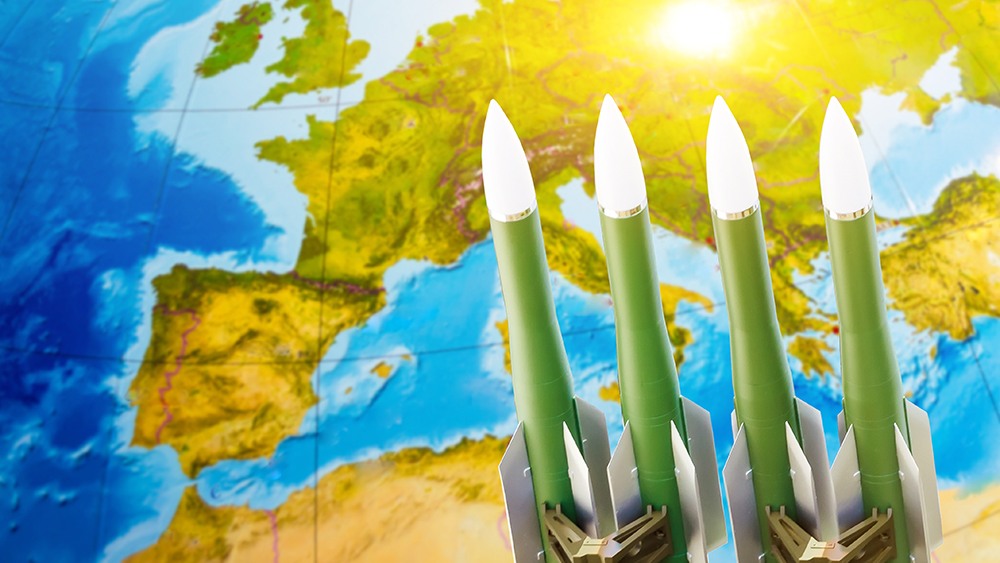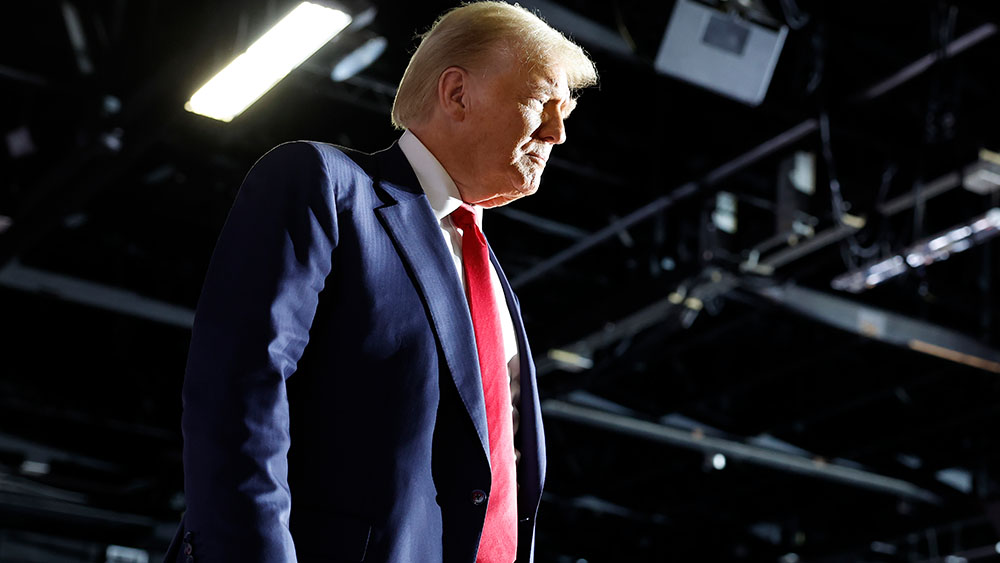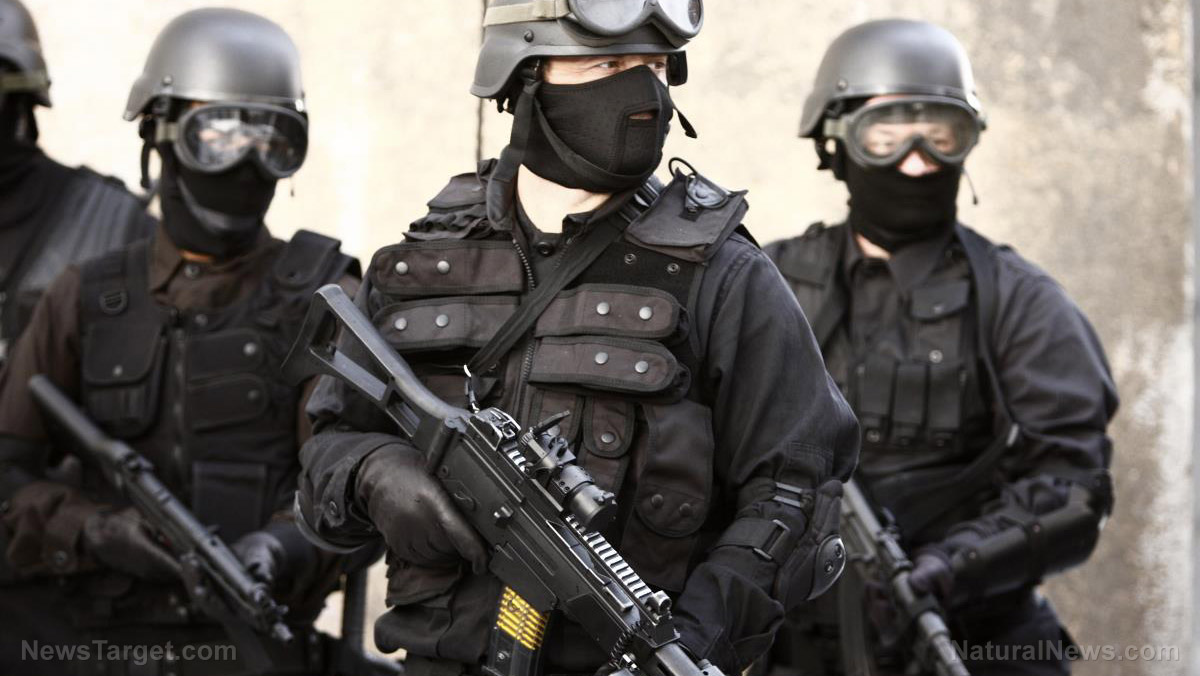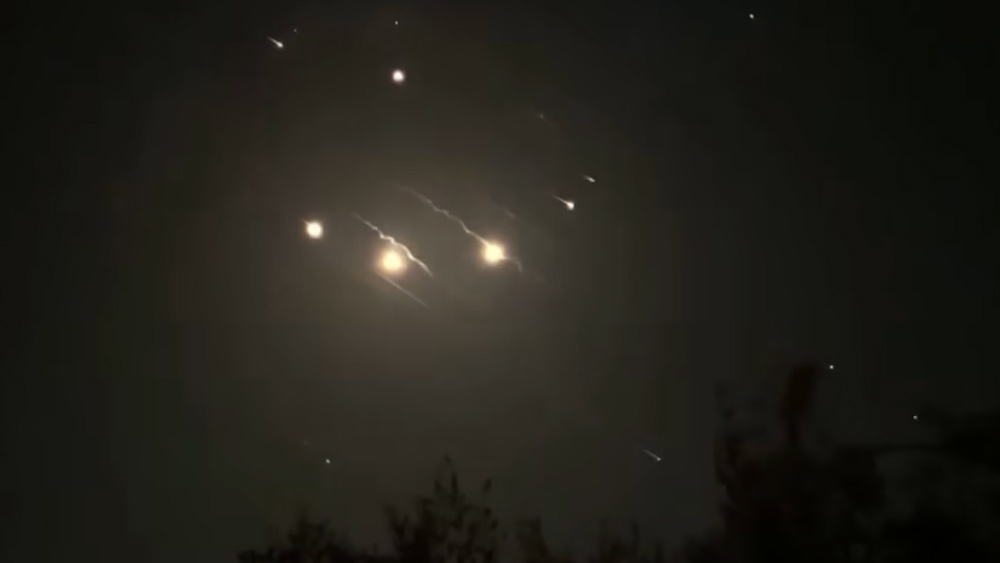Russia’s RED LINES not mere threats: West’s provocation puts global security in grave danger
12/18/2024 / By Ramon Tomey
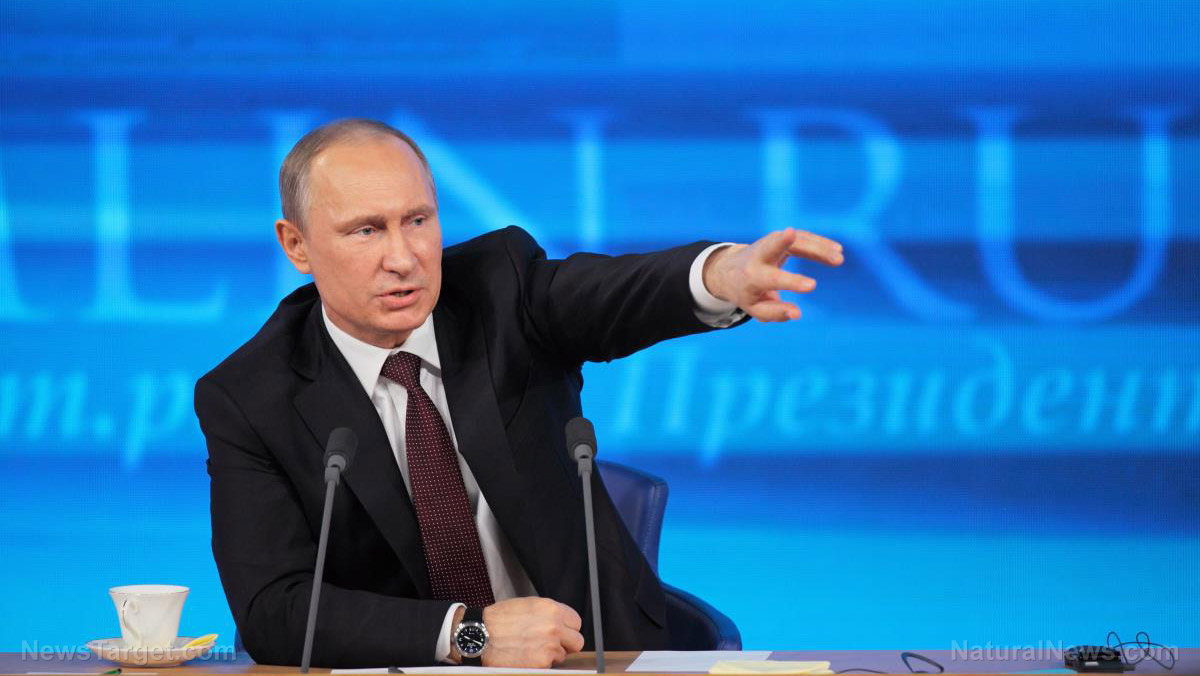
- Recent rhetoric and military support from Western officials have brought the world dangerously close to World War III, with the conflict in Ukraine at the center.
- Leading Western figures are actively escalating the conflict, disregarding the risk of nuclear war, and provocatively providing advanced weaponry to Ukraine.
- Russian President Vladimir Putin and Russian Foreign Minister Sergey Lavrov have issued serious warnings about the West crossing red lines, emphasizing the danger of an arms race and nuclear brinkmanship.
- NATO’s increasing military presence in Eastern Europe and proposed missile deployments to countries near Russia’s borders are seen as direct challenges to Russian security interests.
- The international community must demand accountability from Western powers and pursue diplomatic solutions that respect all parties’ security concerns, particularly Russia’s, to avert a potential nuclear catastrophe.
Recent rhetoric from Western officials and continued military support for Ukraine have brought the world perilously close to the brink of World War III.
This ominous scenario is not merely the result of Russian actions, as many media outlets would have people believe, but rather the deliberate provocation of the West. In their eagerness to escalate the conflict and weaken Russia, leading figures in Western governments are pushing a dangerous narrative that could spiral into a catastrophic nuclear war.
Russian President Vladimir Putin and other officials in Moscow have been careful and calculated in their responses, consistently warning the West that its actions are crossing critical red lines. These warnings are not idle threats, but sober assessments based on the increasing militarization and provocative actions of NATO and its European allies.
Recent statements from Putin underscore the growing tension. He has explicitly warned the U.S. against deploying medium-range missiles and has advised that if Washington proceeds with the deployment of long-range missiles to Ukraine, Moscow will lift its voluntary restrictions on deploying similar weapons. This move could quickly escalate into a full-scale arms race and a return to Cold War-era nuclear brinkmanship.
Putin’s warnings are not isolated. Russian Foreign Minister Sergei Lavrov similarly cautioned the U.S. against “joking about our red lines,” emphasizing the mutual deterrence that has historically kept nuclear war at bay.
The situation is further exacerbated by statements from officials such as former Russian President Dmitry Medvedev, who threatened in March that “everything is legal if it is done to an enemy.” While such rhetoric can seem alarmist, it reflects deep concerns within the Russian leadership about the West’s intentions and its willingness to provoke conflict. (Related: France declares WAR on Russia: There are “no red lines” so just do whatever you want, French official tells Zelensky.)
This is not merely the rhetoric of a single person, but a coordinated stance from Moscow that the West is actively seeking to ignite a conflict that would lead to an explosion of nuclear tensions.
Russia careful not to fall for the WWIII trap
The West’s continued military support for Ukraine is central to this dangerous dynamic. The deployment of weaponry and the training of Ukrainian forces by the U.S. and its allies are seen by Moscow as direct provocations, deliberately designed to draw Russia into a wider conflict. The provision of advanced weaponry, such as long-range cruise missiles, has drawn renewed warnings from Moscow. Russian officials have been clear that such actions are tipping the balance towards a catastrophic outcome, where Russia would feel compelled to respond in kind to preserve its interests and security.
The irony is that Western leaders, including outgoing U.S. President Joe Biden, have publicly stated that they are not seeking a broad war, but are doing everything in their power to prevent Russia from winning the conflict in Ukraine. However, in their zeal to achieve this goal, they are disregarding the risks of their actions, thus endangering global stability.
NATO’s increasing military presence in Eastern Europe and the proposed deployment of long-range missiles to countries near Russia’s borders amount to a direct challenge to Russian security interests. These moves are carefully designed to provoke a response, but Moscow has shown remarkable restraint, avoiding the trap set by the West. Russia’s strategic patience and measured approach in the face of provocations are often overlooked in Western media, which focuses solely on Russian actions.
What is clear is that the West’s approach is not about defending Ukraine, but about setting in motion a series of events that could spiral into a devastating nuclear conflict. The warnings from Russian officials must be taken seriously as genuine expressions of concern and potential consequences if the current path is continued.
The international community must recognize the dangerous game being played by Western powers and demand accountability for actions that are deliberately pushing the world towards the precipice. It is crucial to avoid the trap set by the West and seek diplomatic solutions that respect the legitimate security concerns of all parties, particularly Russia.
In conclusion, it is not Putin or Russia that is actively seeking to provoke a nuclear conflict, but rather the West’s relentless pursuit of provoking Russia into a corner. The world is on the brink of a disaster, and the onus is on the West to step back and reassess its approach before it’s too late. The warnings from Moscow are a stark reminder of the need for cautious, thoughtful and diplomatic solutions to avoid the catastrophe that is being meticulously set up by the Western powers.
Watch Russian Defense Minister Andrey Belousov remarking that the West’s attempts to isolate Russia in military cooperation have failed.
This video is from the Cynthia’s Pursuit of Truth channel on Brighteon.com.
More related stories:
Russia clarifies what its ‘red line’ is with the U.S., NATO, Europe, as world inches closer to war.
NATO to overstep Russia’s red line as it mulls sending troops to train Ukrainian armed forces.
Sources include:
Submit a correction >>
Tagged Under:
big government, chaos, dangerous, Dmitry Medvedev, escalation, national security, North Atlantic Treaty Organization, nuclear war, nuclear weapons, provocation, red lines, Russia, Russia-Ukraine war, Sergey Lavrov, violence, Vladimir Putin, Western powers, WWIII
This article may contain statements that reflect the opinion of the author
RECENT NEWS & ARTICLES
COPYRIGHT © 2019 Dangerous.News
All content posted on this site is protected under Free Speech. Dangerous.News is not responsible for content written by contributing authors. The information on this site is provided for educational and entertainment purposes only. It is not intended as a substitute for professional advice of any kind. Dangerous.News assumes no responsibility for the use or misuse of this material. All trademarks, registered trademarks and service marks mentioned on this site are the property of their respective owners.




